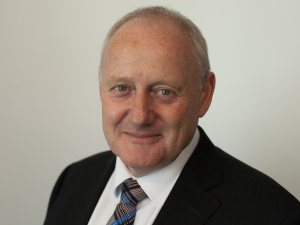Ravensdown partners with Footrot Flats to celebrate Kiwi farming heritage
Ravensdown has announced a collaboration with Kiwi icon, Footrot Flats in an effort to bring humour, heart, and connection to the forefront of the farming sector.
 Ravensdown chief executive Garry Diack says it has been a challenging period for traditional farming.
Ravensdown chief executive Garry Diack says it has been a challenging period for traditional farming.
Fertiliser co-operative Ravensdown says farmers bought 27% fewer products last financial year as prices soared.
Announcing its annual results, the co-operative noted while farmers’ annual spend remained constant, tonnage sold dropped from 1.2 million tonnes the previous year to 895,000 tonnes for the financial year ending May 31, 2023.
It ended the year with a net profit before tax of $429,000. A tax benefit takes the co-operative’s 2023 net profit after tax from continuing operations to $2.9 million.
Reported revenue of $977 million includes insurance proceeds for flood damage and a fire at the co-operative’s Napier plant and is on par with last year’s reported revenue of $922 million. The co-op is not paying a rebate to shareholders.
Ravensdown chief executive Garry Diack notes that it is a challenging period for traditional farming practice.
Diack says Ravensdown’s policy has been to deliver competitive pricing throughout the year, effectively absorbing fertiliser prices in recent times through reduced margin.
“Having distributed value in this way, we finished the year below forecast income and are not in a position to pay a year-end rebate.
“We have also undertaken specific initiatives to reduce operating expenditure through a review of the organisation’s capital expenditure and overhead costs.”
Despite the difficult operating environment, Ravensdown has maintained a strong focus on working capital, with tighter inventory management and reduced supply chain volatility resulting in a positive $119 million cash turnaround from the previous financial year. Stock impairment at year end is $4.2 million.
Bruce Wills, Ravensdown chair, noted the coop’s ongoing focus on balance sheet strength within this high cost and low profitability environment.
“This year’s financial results, which include an improved equity ratio from 62% to 74%, has highlighted the importance of a conservative approach to managing the co-operative’s balance sheet.
“While external factors throughout 2023, such as Cyclone Gabrielle and increasing farm input costs, put pressure on cashflow and profitability, equity levels remain robust.
“Within a broader operating environment, we have seen signs that current fertiliser prices will maintain their stability through spring.”
Ravensdown continued to invest in technologies and partnerships to bring future scale benefit to customers and shareholders, such as the sustained development of HawkEye, AgriZeroNZ for greenhouse gas reduction technologies, and the new commercial venture arm, Agnition.
A Taranaki farmer and livestock agent who illegally swapped NAIT tags from cows infected with a bovine disease in an attempt to sell the cows has been fined $15,000.
Bill and Michelle Burgess had an eye-opening realisation when they produced the same with fewer cows.
It was love that first led Leah Prankerd to dairying. Decades later, it's her passion for the industry keeping her there, supporting, and inspiring farmers across the region.
Rangitikei Rivers Catchment Collective (RRCC) chairperson Roger Dalrymple says farmers in his region are taking a national lead in water quality awareness and monitoring.
One young couple is proving farm ownership is still within reach for young Kiwis.
Greenlea Premier Meats managing director Anthony (Tony) Egan says receiving the officer of the New Zealand Order of Merit (ONZM) honour has been humbling.